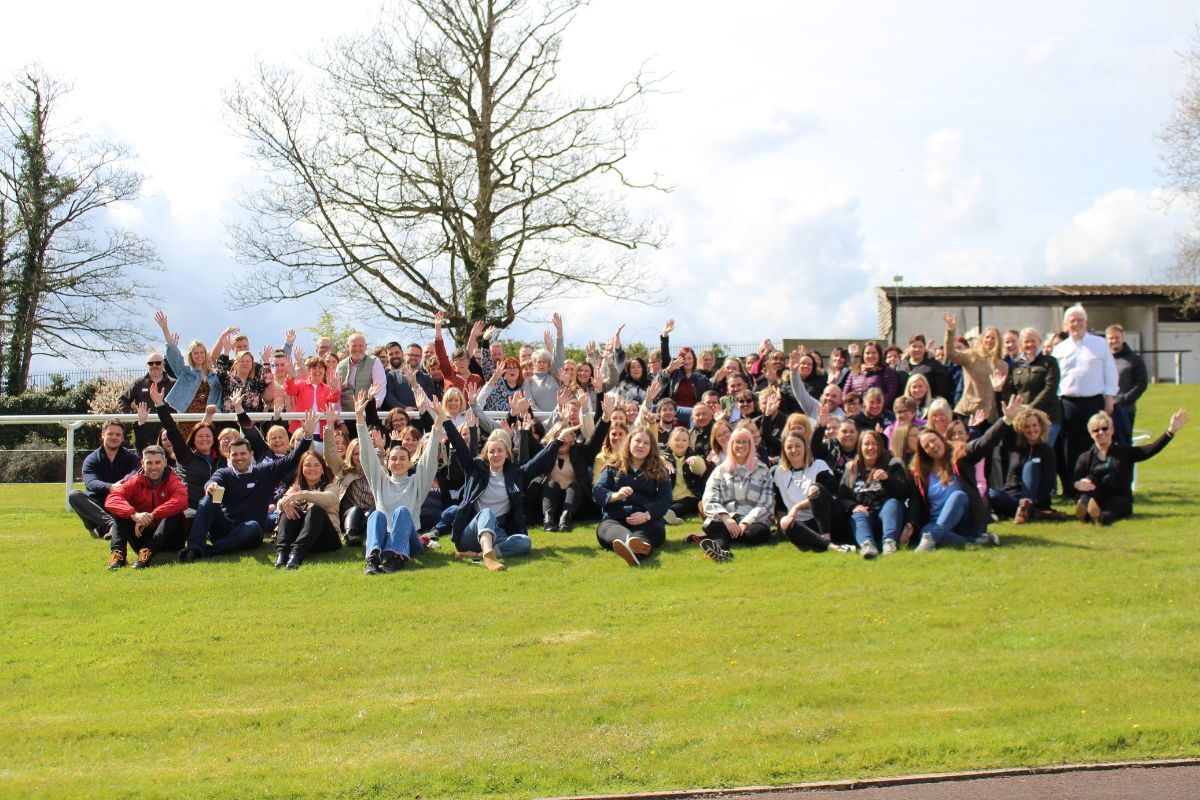Educ8 Training celebrates UK Employee Ownership Day

Staff of Educ8 Training Group based in south Wales, are celebrating UK Employee Ownership Day on Friday 23 June.
The event is run by the Employee Ownership Association and this year’s theme is #TheEOeffect. It aims to showcase the positive impact employee ownership has on employees, business, the wider economy, communities and the environment.
Formed in 2004 and employing over 250 members of staff, Educ8 Training Group is an employee owned and award winning provider of apprenticeships and training. It became an Employee Owned company in February 2022.
Colin Tucker, Chairman of Educ8 Training Group said, “Our people mean everything to us. Without a motivated and engaged workforce the company would not have achieved the growth and accolades it has. We were immensely proud to transition to employee ownership.
Working with the EOT and Group Board, we want to create an environment where we become exemplars in the EOT world, driving wealth through our employees and into our communities. We are excited for the future and look forward to working with all our partners to achieve our collective aspirations.”
Grant Santos, CEO of Educ8 Training Group added,
“It is difficult to believe over a year has passed since Educ8 become an Employee Owned business. The past year has been extremely busy, with Haddon Training and Aspire2Be joining the group and achieving further growth. We have grown by 50 members of staff and our employee owned status has undoubtably helped with staff retention and recruitment.”
In conjunction with EO Day, Educ8 Training Group is launching an employee forum to further support the work of the EOT and bolster employee engagement. The forum will act as a conduit between the EOT, the group’s executive board and the employees.
The group is also launching a competition for staff to design a logo for the EOT, with a prize for the chosen entry.
James de le Vingne, CEO for the Employee Ownership Association said,
“Companies such as Educ8 Training Group are great examples of the economic and social benefits that can be achieved when employees have a say in the business in which they work. Since it started, the reach of EO Day and the scale of the employee ownership sector has grown, with both having more than doubled in the past few years. Now, we have the opportunity to accelerate the pace of growth and reach even wider audiences to shout about employee ownership and its impact.
The benefits that employee ownership provides the business and employees is something this year’s EO Day will raise awareness of. At a time of economic turbulence, EO’s benefits for employees, businesses and local areas is particularly relevant. By celebrating, we can help showcase the impact of employee ownership and #TheEOeffect.”
Numerous events will run across the UK, with the involvement of thousands of employee owners and partners. EO Day was introduced to raise awareness of employee ownership as an economically strong and balanced business model.
Tracey O’Neill, Head of HR at Educ8 Training Group said,
“Being part of an EOT provides security for our future, knowing that if we sell the company the EOT’s share of the sale proceeds would be divided amongst the employees. Who knows what opportunities may lay ahead in years to come. The EOT provides a legacy which will continue and grow. If in years to come there is a future sale it will allow employees to share in that reward which is pretty amazing.”
The benefits of employee ownership have been proven in EOA led research. Benefits include improving employee health and wellbeing, increasing productivity and fostering creativity and innovation across an array of industry sectors.
UK employee owned companies contribute over £30 billion to the UK economy annually. Additionally, employee owners have higher levels of job satisfaction, feel a greater sense of achievement and job security, and are more likely to recommend their workplace than employees in non-employee owned businesses.
Employee owned businesses operate in a range of sectors including healthcare, social care, education and training, transport, manufacturing, retail and professional services.












Responses